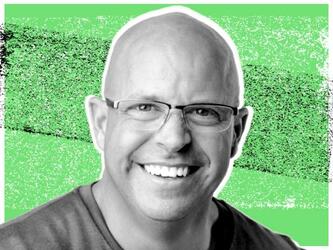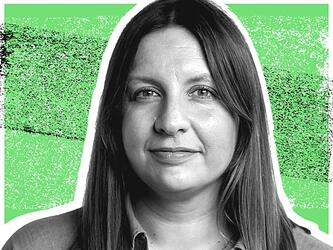More than skin deep
The rise of user generated content and popularity of platforms such as Instagram, Facebook and Snapchat have transformed the way people talk about beauty and their attitudes towards it. People post 350 million photos on Facebook and 80 million images on Instagram every day. If a picture is worth a thousand words… well, that’s a lot of words.
Kantar Added Value and visual marketing platform Olapic teamed up to analyse the five key ways in which social media has impacted on the beauty industry.
Five themes but with one thing in common – a grassroots element in which beauty trends are springing from social platforms and ‘micro influencers’ rather than the traditional route of trickling down from the top.
1. Expression
People enjoy posting pictures on social media that show off their makeup skills and creative prowess, whether it’s getting ready for a Saturday night out or something a little bit more special like Halloween (a trend that is both encouraged and tapped into by initiatives such as GiffGaff’s Halloween makeovers and Debenhams’ Glamoween campaign).
But we are now seeing a cultural shift where the important thing is not the precision and perfection of the makeup itself, but people’s desire to subvert expectations, mess around with traditional makeup looks (illustrated by the #maskmonday phenomenon) and explorations of gender fluidity.
Thanks to influencers such as Ugly Worldwide and Danny Defreitas, and brand campaigns like ASOS Face & Body, as well as the explosion of interest in funky face masks, creative expression in beauty is becoming more about having fun and making the most of your unique look – quirks and all – instead of showing off your artistic makeup skills. In the world of social media, it’s flair and fun that grabs people’s attention, not perfection.
2. Identity
The beauty industry has long been talking about body positivity and self-acceptance, but only in the age of social media has it begun to recognise that the personal is also political.
Spurred on by people’s changing attitudes towards what constitutes ‘beauty’ and the democratising effect of social media, the rhetoric around the beauty industry has finally begun to move into a space which is genuinely about activism and a radical celebration of identity.
With the digital age seeing a huge shift in the balance of power away from brands and towards consumers, people are also using social media to make a difference to people’s lives and the way the beauty industry works, all the way from supermarket shelves to the catwalk.
Disrupter brands and influencers are tackling some of these issues head on. Makeup brand Glossier makeup and influencers such Callie Thorpe and Tess Holliday have radically challenged traditional beauty standards, while FentyBeauty and Freddie Harrel’s Big Hair No Care represent a step change in the way women of colour are catered for and represented.
3. Physicality
While the masses of post-workout snaps on Instagram might make you think otherwise, the way we treat our bodies is moving from a mantra of ‘push yourself’ to stressing the importance of ‘knowing yourself’, and we’re beginning to see social media evidence of this shift.
Beauty and holistic well-being aren’t just about products and workouts, but about actively planning rest and downtime.
Arianna Huffington’s #SleepRevolution, our new-found obsession with mattresses and apps to track our sleep, mood and hormones, and skincare brands with integrated sleep-enhancing products such as Kiss the Moon (all of which have a strong presence on Instagram) point to the idea that beauty isn’t solely about physical effort. Rather, it’s about getting to know the ins and out of our individual biorhythms, an emerging trend that has been reflected and encouraged by social media.
4. Expertise
Beauty tutorials are all the rage and you can barely scroll an Instagram feed without stumbling across a video explaining how to get the perfect ‘smoky eye’.
At the same time brands like The Ordinary and Neutrogena make expert skincare products and devices at affordable prices, and consumers have access to expert diagnosis and treatment thanks to tech products like HiMirror.
We are witnessing a shift from only having access to exclusive techniques and tutorials to a genuine technical democracy. Social media has provided the toolkit for this phenomenon to occur – thanks to online videos and a positive, ‘sharing’ culture, beauty expertise and its surrounding technology is becoming available to all.
5. Masculinity
The concept of ‘masculinity’ has been seen as simply an add-on of the products available to women in the beauty industry. But increasingly, men are adopting a form of care regime tailored specifically to their needs rather than male versions of feminine beauty treatments.
Digital and social media platforms are aiding this transformation: as was the case with the expertise space (above), the democratisation of information means that men have better and wider access to information and products concerned specifically with masculine needs.
Zero Skin, MMUK and Brickell are all brands with a strong digital presence which understand that male ‘beauty’ is a much bigger space than many people recognise, creating products which look set to transform the male care regime.
At the same time, we have seen a cultural shift in men using social media to express their needs and emotions more openly (see Professor Green and Freddie Flintoff’s views on male mental health).
As a result, the beauty industry’s take on masculinity will be much more multi-faceted in the future.

We hope you enjoyed this article.
Research Live is published by MRS.
The Market Research Society (MRS) exists to promote and protect the research sector, showcasing how research delivers impact for businesses and government.
Members of MRS enjoy many benefits including tailoured policy guidance, discounts on training and conferences, and access to member-only content.
For example, there's an archive of winning case studies from over a decade of MRS Awards.
Find out more about the benefits of joining MRS here.











0 Comments